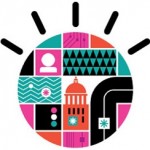Generic
The new relationship Citizen – Government* (part two): A digital Government
09/12/2014 | Written by: Think Blog redactie (0cB)
Categorized: Generic
Share this post:
Click here for the French version
Click here for the Dutch version
Author: Joan Van Loon, Enterprise Business Unit Leader Public, Life Sciences, Telco & Utilities | IBM Belux
About the author: Joan has over 17 years of experience in business management and management consulting, with expertise in diverse areas like business operations and transformations, IT strategy & governance, quality management, knowledge management and people management. He is currently leading the Public Sector in IBM Belux with personal focus on Watson, government innovation and healthcare.
A digital Government
As discussed in the first article of The new relationship Citizen – Government series, everything is digital today. As citizens, people expect the same high level of digitization and engagement from their government, as they receive from the different private services providers.
Being digital means that the government can ensure fast and transparent access to information and that it can engage with its citizens, tailoring the public services based on each individual need. In order to reach the level of relationship previously discussed, the government must have the right technology and then open the data to the public. Making the data open will give people a chance to weigh the various aspects of the government, or of the society, and to choose what kind of public services they need. Open data can even boost economic growth as businesses can use that data make decisions about producing goods or services that are in highest demand.
 Modern citizens also expect national, regional or local authorities to respond rapidly to their social needs. Moreover, people expect it to happen in a transparent and responsible manner. In order for the government to have such a rapid answer, it needs to have a good data-management system, especially since enormous amounts of data are frequently unstructured and changing in real-time. Moreover, the open data should be available in a format that allows people to share and combine it with other data in their own applications. This is why transparency is not only about access to data, but also making sure that it has an open and reusable format. And of course, this implies a very good dialogue between the different levels of government (from local to national or even international level).
Modern citizens also expect national, regional or local authorities to respond rapidly to their social needs. Moreover, people expect it to happen in a transparent and responsible manner. In order for the government to have such a rapid answer, it needs to have a good data-management system, especially since enormous amounts of data are frequently unstructured and changing in real-time. Moreover, the open data should be available in a format that allows people to share and combine it with other data in their own applications. This is why transparency is not only about access to data, but also making sure that it has an open and reusable format. And of course, this implies a very good dialogue between the different levels of government (from local to national or even international level).
A fully transparent and digitized government can help to renew the public’s trust. It is often the case that the public mistrusts the government because frequently they do not have insights into how decisions are being made, or who is responsible for making. In this new age of transparency, accountability and digitization, both the government and the citizens need access to the right information, at the right time to make decisions.
_____________________________________________________________________
*The new relationship Citizen – Government is full series of 8 articles and studies about how the new era of technology changes is perceived and embraced by the public authorities and which are the new challenges encountered when trying to keep or build a relationship with the modern citizen or when trying to ensure them with security.
Automate work and accelerate business growth
Many companies need help to navigate the rapid changes that define today’s business environment. To improve their responsiveness and flexibility, they are looking for new ways of conducting business, rethinking their processes, and investing in digital transformation projects to increase the robustness of their operations. They rely on business automation technologies to cut out repetitive […]
Sustainability and the technologies enabling the transition
Creating a sustainable future demands significant technological innovation to decarbonize society, restore biodiversity and ecosystem health, foster thriving oceans for sustenance and economic growth, remove atmospheric carbon, transition to sustainable agriculture, and advance eco-friendly cities that align with our vision for a better future. Generative AI has achieved much in recent years and now surpasses […]
Technology in action at Think Summit 2021
Covid 19, the energy transition and climate change require business agility… right away! Organizations that are slowly starting their digital transformation are irrevocably overtaken by competitors: companies that can quickly realize new, sustainable business models with a remote workforce. How can organizations leverage innovations such as AI, machine learning and hybrid cloud to make […]




